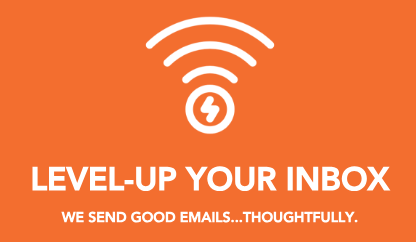
The New York Times recently featured an article touting the benefits of meditation and looking at how the worlds of business, networking and meditation are all converging. But more importantly, this article was on the front page of the Style section.
Now as a journalism major/ex-dotcommer/Pilates teacher and studio owner/sustainability consultant/entrepreneur/breast cancer survivor/meditation teacher, all with a consistent and underlying minor obsession with all things style and fashion, this was beyond exciting for me. It was as if all my worlds were coming together in the New York Times Style section – the epitome of external validation.
But while I love spreading the good word of meditation and its benefits, if there is anything that the past two years have taught me it’s that this external validation doesn’t define who we are – it’s how we show up inlife. And I am convinced that meditation and mindful awareness help us not only show up in life, but engage in a much more meaningful and profound way.
A big “aha” for me when I started my daily practice is that it’s not necessarily about that zen moment where everything is calm and serene (although that ultimately can happen). It is about shifting our relationships with our thoughts. It’s the nature of the brain to have thoughts. You may be sitting in silence or focusing on your breath when your thoughts start to drift: What will I make for dinner? What do I need at the grocery store? Did I send the email?
This is normal. Meditation is the tool to interrupt those thoughts and cultivate the ability to pay attention to the here and now, bringing your focus back to your breathing, on purpose and without judgment. It’s through the daily practice that we ultimately get out of our own way.
Meditation and mindfulness are becoming more mainstream because they work. Here are three pretty important benefits.
- Increased Focus.
Say goodbye to multitasking and hello to personal productivity.
There is a Zen proverb that says: “When walking, walk. When eating, eat.” In other words, don’t try to knock off a few tasks while eating or walking. Focus on the task at hand. Studies have shown that multitasking can reduce productivity up to 40 percent. When we meditate, we increase the gray matter of the hippocampus, the part of the brain responsible for learning and memory. We enhance our focus and memory. You may notice you can focus more easily in meetings or that your creativity flows with more ease.
Tip: Choose mindfulness triggers. Think of something you do everyday and choose to be mindful when you are doing it. For example, next time you are at a red light, let that be a reminder to just notice your breathing instead of grabbing your phone or playing with the radio.
- Better Able to Understand Our Emotions
Communicate with more ease and become an authentic team player.
When we meditate, we become more emotionally fluent and better able to control our emotions. We increase the folds of the insula, a part of the brain responsible for emotional self-awareness. Our emotions tell us where our attention is focused. When we feel anxious or fearful, it’s a clue that our focus is in the future. When we feel grief or depression, our attention is likely in the past. Our job is to notice and allow ourselves to feel what we feel and then return our attention kindly, right back to where we are and what we are doing now. It’s likely more peaceful, and we are better able to engage and communicate with others in a more enjoyable way.
Tip: Be present with others: How many of us have spent time with someone but have been distracted by thoughts of what we want to say next or what we need to do later? Instead, focus on being present, on really listening, on really enjoying your time with that person, looking him or her in the eye. Try making certain meetings computer- and phone-free zones where you focus on a specific topic.
- Engage More and React Less
Create space between impulse and action; Respond with more calm and clarity.
As we meditate, we decrease the gray matter in amygdala, the part of the brain responsible for flight or fight. We live in stressful times and are being pulled in a million different directions. While life stresses will always exist, by practicing mindful awareness and meditation, over time we become more self-aware, less reactive and better able to engage with these stressors in a much more calm and meaningful way.
Tip: Set aside time daily to simply sit and breath. Start by counting breaths — inhale 1, exhale 2, inhale 3, etc., up to 10. If you get distracted (which you will), start again at 1.
Paige Davis created Soul Sparks as a destination to inspire and empower anyone looking to live a more meaningful life through meditation and mindfulness programs. She is a certified meditation teacher with the McLean Meditation Institute. Paige is also co-founder of sustainable lifestyle product company BlueAvocado. Follow her on Instagram, Twitter and Facebook.


